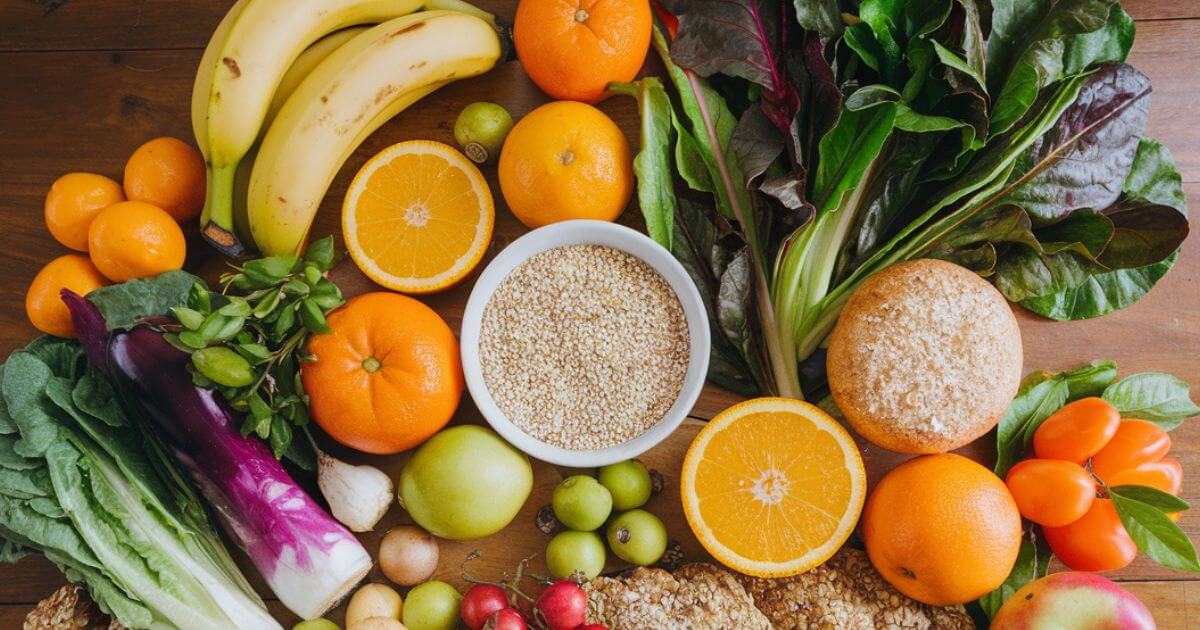Eggs have been a dietetic staple for spans, but only recently has science confirmed what many cultures intuitively knew – they are one of the most nutritionally complete foods on Earth. Whether you are a sportsperson looking to optimize performance, a demanding parent needing quick nutrition, or someone simply deficient to eat healthier, eggs offer an unmatched combination of accessibility, affordability, and health paybacks.
Eggs are one of the most nutritious and versatile foods you can eat instead of saying Why Eggs Are Superfood? But if the muddle persists here is the answer for you! Eggs are called complete diet and packed with high quality protein, essential vitamins, and powerful antioxidants that makes them a true superfood. So, if you are trying to boost your brain function, support heart health, or build muscle, nails and hairs health then, eggs can be your go-to breakfast option.
Dr. Michael Kim, a nutrition scientist at Harvard Medical School states:
“In my 20 years of nutritional research, few foods match the eggs’ perfect balance of high-quality protein, essential fats, and micronutrients. They are natures’ multivitamin – yes that support you from muscle growth to brain function.”
If you’ve been wondering how to add more eggs to your diet, in a simplest way! Here are 5 quick egg breakfasts you should try that are not only delicious but also packed with nutrients to keep you energized throughout the day.
The Science-Backed Health Benefits of Eggs
Building and Repairing Your Body
Egg protein is considered the reference, a standard alongside which all other proteins are measured. The reason of this is here:
- Complete Amino Acid Profile: A single egg contains all nine essential amino acids in the ideal percentage for human nutritional needs and a single large egg have 6 grams of this protein.
- Muscle Synthesis: Research published in The American Journal of Clinical Nutrition(2020) found egg protein helps in stimulating muscle protein synthesis more efficiently than many plant-based proteins.
- Weight Management: In the same study showed egg-based breakfasts increased satiety by 32% compared to meals that are grain based., hence reduces intake of more calories in a day.
Expert Insight: “For post-workout recovery, I recommend eggs over protein shakes,” says Dr. Lisa Turner, sports nutritionist. “The protein is more bioavailable, plus you get all the co-factors needed for optimal absorption.”
Brain Booster
Egg yolks are the richest dietary source of choline, a nutrient most Americans don’t get enough of:
- Memory & Learning: A 2019 Journal of Nutrition study linked higher choline intake to better memory performance and 28% lower risk of dementia.
- Fetal Development: The NIH reports that adequate choline during pregnancy increases brain development.
- Liver Health: Choline helps prevent fatty liver disease by supporting fat metabolism.
Research Stat: Over 90% of pregnant women fail to meet choline dietary percentage, reported in Nutrients journal study and just two eggs provide 50% of daily needs.
Heart Health
After decades of controversy, major studies have exonerated eggs:
HDL Boost: A British Medical Journalmeta-analysis (2021) found egg consumers had higher HDL (good) cholesterol.
Real-World Data: A 500,000-person Chinese study published in Heart journal reported that intake of up to 1 egg daily lowers cardiovascular disease risk by 11%.
Note: People with familial hypercholesterolemia or type 2 diabetes should consult their doctor about individual limits.
Vision Protection
Egg yolks contain lutein and zeaxanthin – the same antioxidants that protect plants from sun damage. Egg fats increase lutein bioavailability 3-4 times compared to spinach or supplements (Journal of Nutrition). These antioxidants filter blue light and reduce oxidative damage to eye lenses., thus help cataract prevention. Regular egg consumers have a 26-38% lower risk of age-related macular degeneration (American Journal of Ophthalmology).
Bone Strength and Immunity
Eggs provide multiple nutrients critical for skeletal and immune health. This is how eggs are healthy for bones:
- Vitamin D: One of few natural food sources, two eggs provide 82% of the RDI while pasture-raised eggs have 3-4 times more.
- Selenium: A powerful antioxidant supports thyroid function and reduces inflammation in body.
- Vitamin K2: This nutrient leads calcium to bones rather than arteries.
Maximizing Egg Benefits by Egg Selection and Preparation
To get the utmost nutritional value from eggs, smart selection and proper preparation are key. Here is how to optimize these parameters.
Selecting Quality Eggs
Pasture-raised eggs are the gold standard, containing 2-3 times more vitamin E and omega-3s than conventional eggs, according to a 2022 study in Poultry Science. These hens forage naturally, resulting in eggs with deeper orange yolks, indicating higher antioxidant levels. Omega-3 enriched eggs provide 400-600mg of omega-3s per egg (vs. 30mg in conventional), that is ideal for heart and brain health. Grade AA vs. A refers to freshness and appearance of eggs. Both of these provide equal nutrition, but AA eggs have firmer whites for presentation than grade A eggs. Also check dates as the 3-digit code on cartons (001=Jan 1) indicates lay date. Eggs are freshest when used within 3 weeks but remain nutritious for 50 days when refrigerated.
Storage of Eggs
Store eggs in their original carton at ≤40°F to prevent flavor absorption and moisture loss through porous shells. For meal prep, hard-boiled eggs last 1 week peeled (2 weeks unpeeled), while raw eggs can be frozen for 3 months.
Comparison of Egg Cooking Methods
Soft boiling requires 6 mins and preserves heat-sensitive nutrients like choline and vitamin B12 in its best form. Scrambling eggs with a splash of milk increases protein digestibility from 91% to 97% reported in the journal of Food Chemistry 2021). Poaching eggs in vinegar-water (1 tbsp per quart) stops white dispersion whereas maintains yolk integrity. If Frying eggs in olive oil, it creates beneficial lipid-protein complexes that boost carotenoid absorption by 40%.
Nutrient Pairings
Combine eggs with vitamin C-rich foods found in bell peppers, citrus food items to increase iron absorption 3-fold. Pairing eggs with healthy fats such as found in avocado, olive oil helps in optimal absorption of fat-soluble vitamins A, D, E, and K. Add turmeric to egg dishes, the curcumin in turmeric works synergistically with egg proteins to reduce inflammation markers in the body by 25% (Nutrition Journal 2023).
Safety Considerations
Cook eggs until whites are fully set and yolks begin to thicken (160°F) to eliminate salmonella risk while preserving nutrients.
Special Prep Tips
- For fluffier scrambled eggs, add 1/4 tsp cornstarch per egg helps in creating a velvety texture by preventing protein over-coagulation.
- For baking, bring eggs to room temperature first – they will emulsify better, and will create lighter textures in cakes and soufflés.
- For perfect peeling hard-boiled eggs, use 1-week-old eggs and shock in ice water immediately after boiling. This expands air pockets helps in separating membrane from shell.
By relating these science-backed selection and preparation methods, you can change ordinary eggs into a nutritional powerhouse. The amalgamation of proper sourcing, storage, and cooking techniques ensures you receive maximum benefits from every bite. Remember that even conventional eggs still deliver exceptional nutrition, so focus on consistent addition in your diet rather than excellence in sourcing.

Here Are 5 Quick Egg Breakfasts You Should Try
Eggs are super quick to cook, making them picture-perfect for busy mornings. Whether you love scrambled, poached, or baked eggs, these ideas will make your mornings tastier and healthier.
- Avocado & Poached Egg Toast
Take a slice of whole-grain toast, add mashed avocado, top with a poached egg, and chili flakes for a nutritious, heart-healthy breakfast.
- Spinach & Feta Scrambled Eggs
Scramble eggs with fresh baby spinach and crumbled feta cheese for an antioxidant-rich, protein-packed meal.
- Hard-Boiled Eggs with Greek Yogurt & Nuts
Pair hard-boiled eggs with Greek yogurt, almonds, and honey for a balanced, protein-rich breakfast.
- Chia Pudding with Soft-Boiled Egg
Enjoy chia seed pudding with a soft-boiled egg and fresh berries for a fiber-packed start to your day.
- Breakfast Egg Wrap
Wrap scrambled eggs with lean turkey and fresh veggies in a whole-wheat tortilla for a protein-packed, on-the-go meal.
Beyond their health benefits, eggs are one of the easiest foods to prepare. Whether you prefer them boiled, scrambled, poached, or baked, there are endless ways to incorporate them into your meals. If you’re looking for inspiration, try these 5 quick egg breakfasts that offer a mix of flavors, textures, and nutrients to keep your mornings both exciting and nourishing. From avocado toast to protein-packed omelets and egg muffins, these recipes are not only delicious and nourishing but also amazingly easy to prepare.
With their extraordinary nutrient profile, affordability, and flexibility, eggs remain a top choice for a healthy lifestyle. Try incorporating them into your meals, experiment with different recipes, and enjoy the amazing health advantages they provide. Your body, brain, and taste buds will thank you!




